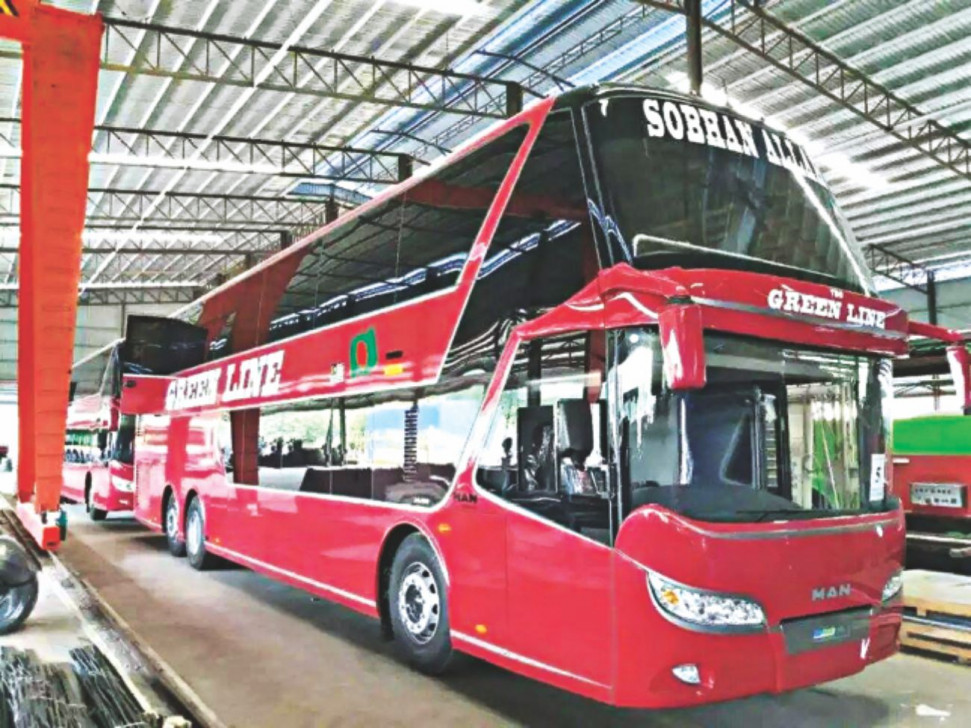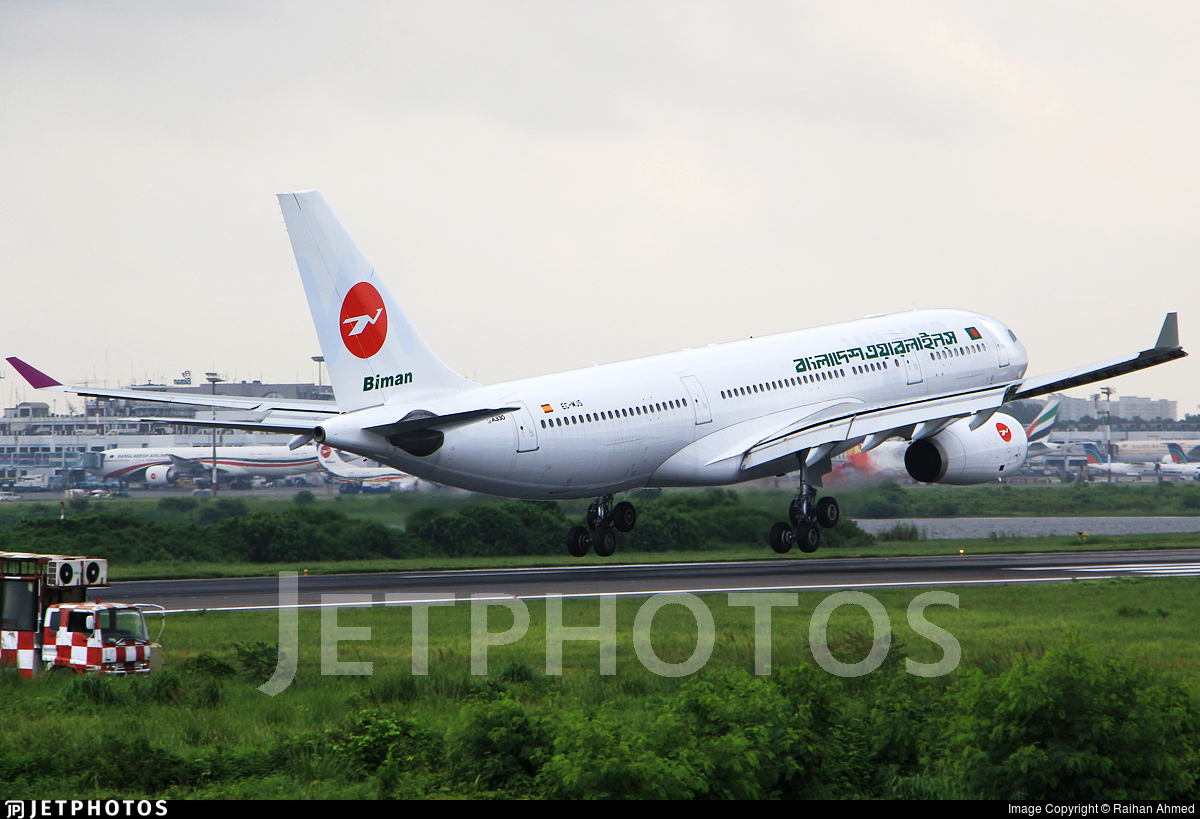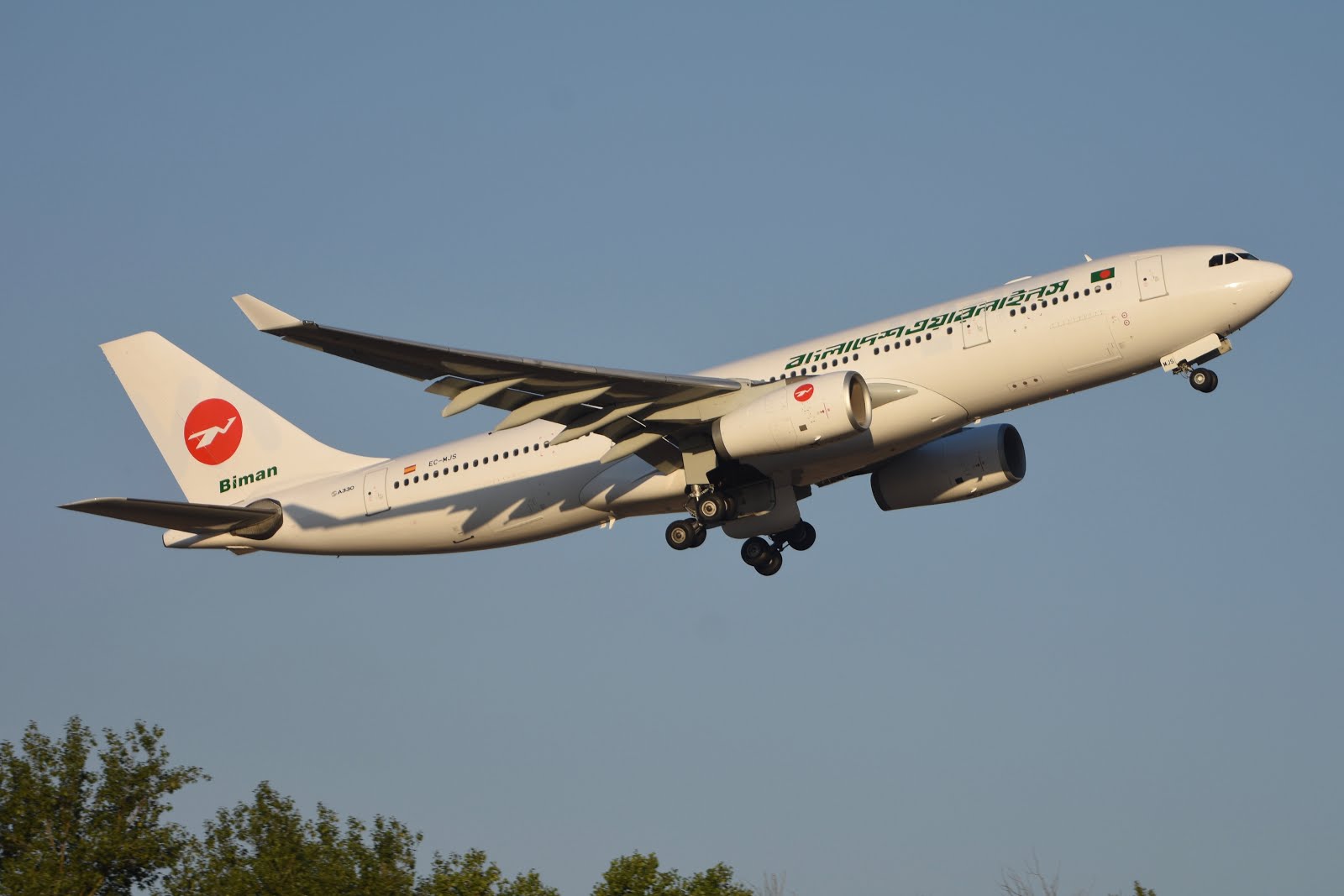Banglar Bir
SENIOR MEMBER

- Joined
- Mar 19, 2006
- Messages
- 7,805
- Reaction score
- -3
- Country
- Location
Terminated: The inside story of Accenture’s departure from Bangladesh

Photo:Rajib Dhar
'All everyone will remember is that Accenture’s Bangladesh venture failed'
Late last year, the 500-odd employees of consulting and outsourcing giant Accenture PLC’s Bangladesh office grew worried at the company’s failure to attract fresh business. There were rumours flying around that if the Dhaka office didn’t see an upturn in fortunes soon, Accenture might pull out. In February this year, the employees’ union staged a protest against what they saw as the management’s inability to grow the Bangladesh business.
Accenture, a Fortune 500 company with global revenues in excess of $32 billion annually, launched its Bangladesh operation in 2013, paying a reported $10 million for a 51% stake in GPIT, a subsidiary of mobile phone operator Grameenphone.
The plan was for the new company, Accenture Communications Infrastructure Solutions Limited, to provide information technology support to Grameenphone as well as function as an outsourcing hub for Telenor, the Norwegian telecommunications conglomerate which controls Grameenphone and several other mobile operators in the region.
Accenture’s leadership thought the Bangladesh arm’s long term viability would be ensured by attracting new outsourcing contracts from North America and Europe, several people with knowledge of the deal with Telenor said.
At the time, Bangladeshi experts welcomed the entry of a leading outsourcing company like Accenture, which they said would cement the country’s image as an emerging hub for business process outsourcing or BPO.
Last month, Accenture Communications Infrastructure Solutions Limited informed all its 556 employees that their services would not be required after November, prompting the employees’ union to call an immediate strike.
Interviews with several current and former Accenture employees reveal that the relationship between the management, almost entirely composed of Indian staff from the company’s Hyderabad office, and the Bangladeshi employees, most of whom had been brought over from GPIT, was troubled from almost the beginning.
Tensions rose in 2014 after the management cut some employee benefits, including a 20,000 taka allowance to buy mobile phones, given every two years at GPIT. The Bangladeshi employees were also asked to work an extra hour, which the management said would help sync production with the Hyderabad office.
The aggrieved employees decided to form a union to ensure collective bargaining rights. Eventually around 400 of the 556 staff members joined the union.
The protest in February was quickly followed by another standoff in April when the management terminated Azizur Rahman, an analyst with the Workplace team. Protests on the floor, however, failed to sway the management.
“I think they wanted to test the waters by sacking me,” Azizur Rahman said. “I was never given any reason for my termination. They made an example of me.”
When Accenture took over GPIT and Grameenphone’s IT support contract in 2013, the mood was optimistic.
Bob Sell, group chief executive of Accenture’s Communications, Media & Technology operating group, said in a statement: “We are excited to be investing in the largest IT services company in Bangladesh.”
He added that the “strategic investment” would allow Accenture to tap into a robust pool of skills and capabilities in the country.
However, Accenture’s GPIT deal was only a small part of a US$215 million global contract with Telenor to provide services in areas including Finance & Accounting, HR, IT and transactional purchases.
Under the global deal, Accenture’s Bangladesh office started working for several other Telenor subsidiaries including Telenor Pakistan, Thailand-based telecom operator Dtac, Malaysia’s Digi, and Telenor Global Shared Services (GSS), Telenor’s worldwide service center for Finance, HR & payroll, procurement and IT services.
However, the ‘local contract’ deal with Grameenphone was seen as the mainstay of the Bangladesh operation, since the ‘global contract’ work was spread out over several Accenture offices. Several current and former Bangladeshi employees said Accenture never grew the Dhaka office into a proper hub. The management of Accenture Communications Infrastructure Solutions Limited always looked to the Hyderabad office for guidance.
“The Dhaka office was a satellite,” a former employee said.
The Bangladeshi employees felt the Indian bosses did not fully understand the local work culture and many hankered after the ‘old days’ of GPIT under Grameenphone management. The management was frustrated by the union’s demands and viewed the employees’ increasing activism as a problem, a source said.
Tensions also grew between the sole senior Bangladeshi manager, CEO Raihan Shamsi and Chief Operating Officer (COO) Purushothama Kadambu. The friction between the two men led to the sidelining of Raihan who spent most of this year at Accenture’s Kuala Lumpur office, according to sources.
Raihan Shamsi declined to comment. Purushothama Kadambu could not be reached for comment.
The first real jolt to the Accenture Bangladesh business came last year when Telenor Pakistan decided to withdraw its work. At roughly the same time, Accenture was locked in negotiations with Grameenphone to increase service charges. After the negotiations failed, Telenor opted for an open tender for services, leading to the GP contract to be awarded to Wipro, a Bangalore-based Indian BPO company.
Grameenphone also reacted by creating an in-house unit to provide IT support, a move which analysts said reverted back to the ‘GPIT model’.
The loss of the GP contract was the final blow for Accenture. The management no longer saw the Bangladesh office as a viable business unit.
“It was easy for them to distribute the remaining work to the India offices,” a source said. “The management had no commitment to Bangladesh.”
Accenture PLC did not respond to requests for comment. A public relations firm working with the Bangladesh office, said in a statement: “Accenture, Telenor Group, and Grameenphone are working closely together to re-organise several engagements across Asia and Europe.”
Shahin Ahmed, general secretary of Accenture Employees Union, Bangladesh, said this left the Bangladeshi employees in the lurch.
“Many of us left Grameenphone to work for Accenture in 2013,” he said. “The future is uncertain for all of us now.”
Shahin called on the government to intervene, saying Accenture’s departure would send the wrong signal to the international BPO industry. He said: “No one will remember that Accenture left because the management here fell out with Grameenphone.
“All everyone will remember is that Accenture’s Bangladesh venture failed.”
http://www.dhakatribune.com/busines...inside-story-accentures-departure-bangladesh/
- Manik Miazee
- Published at 01:38 AM August 04, 2017

Photo:Rajib Dhar
'All everyone will remember is that Accenture’s Bangladesh venture failed'
Late last year, the 500-odd employees of consulting and outsourcing giant Accenture PLC’s Bangladesh office grew worried at the company’s failure to attract fresh business. There were rumours flying around that if the Dhaka office didn’t see an upturn in fortunes soon, Accenture might pull out. In February this year, the employees’ union staged a protest against what they saw as the management’s inability to grow the Bangladesh business.
Accenture, a Fortune 500 company with global revenues in excess of $32 billion annually, launched its Bangladesh operation in 2013, paying a reported $10 million for a 51% stake in GPIT, a subsidiary of mobile phone operator Grameenphone.
The plan was for the new company, Accenture Communications Infrastructure Solutions Limited, to provide information technology support to Grameenphone as well as function as an outsourcing hub for Telenor, the Norwegian telecommunications conglomerate which controls Grameenphone and several other mobile operators in the region.
Accenture’s leadership thought the Bangladesh arm’s long term viability would be ensured by attracting new outsourcing contracts from North America and Europe, several people with knowledge of the deal with Telenor said.
At the time, Bangladeshi experts welcomed the entry of a leading outsourcing company like Accenture, which they said would cement the country’s image as an emerging hub for business process outsourcing or BPO.
Last month, Accenture Communications Infrastructure Solutions Limited informed all its 556 employees that their services would not be required after November, prompting the employees’ union to call an immediate strike.
Interviews with several current and former Accenture employees reveal that the relationship between the management, almost entirely composed of Indian staff from the company’s Hyderabad office, and the Bangladeshi employees, most of whom had been brought over from GPIT, was troubled from almost the beginning.
Tensions rose in 2014 after the management cut some employee benefits, including a 20,000 taka allowance to buy mobile phones, given every two years at GPIT. The Bangladeshi employees were also asked to work an extra hour, which the management said would help sync production with the Hyderabad office.
The aggrieved employees decided to form a union to ensure collective bargaining rights. Eventually around 400 of the 556 staff members joined the union.
The protest in February was quickly followed by another standoff in April when the management terminated Azizur Rahman, an analyst with the Workplace team. Protests on the floor, however, failed to sway the management.
“I think they wanted to test the waters by sacking me,” Azizur Rahman said. “I was never given any reason for my termination. They made an example of me.”
When Accenture took over GPIT and Grameenphone’s IT support contract in 2013, the mood was optimistic.
Bob Sell, group chief executive of Accenture’s Communications, Media & Technology operating group, said in a statement: “We are excited to be investing in the largest IT services company in Bangladesh.”
He added that the “strategic investment” would allow Accenture to tap into a robust pool of skills and capabilities in the country.
However, Accenture’s GPIT deal was only a small part of a US$215 million global contract with Telenor to provide services in areas including Finance & Accounting, HR, IT and transactional purchases.
Under the global deal, Accenture’s Bangladesh office started working for several other Telenor subsidiaries including Telenor Pakistan, Thailand-based telecom operator Dtac, Malaysia’s Digi, and Telenor Global Shared Services (GSS), Telenor’s worldwide service center for Finance, HR & payroll, procurement and IT services.
However, the ‘local contract’ deal with Grameenphone was seen as the mainstay of the Bangladesh operation, since the ‘global contract’ work was spread out over several Accenture offices. Several current and former Bangladeshi employees said Accenture never grew the Dhaka office into a proper hub. The management of Accenture Communications Infrastructure Solutions Limited always looked to the Hyderabad office for guidance.
“The Dhaka office was a satellite,” a former employee said.
The Bangladeshi employees felt the Indian bosses did not fully understand the local work culture and many hankered after the ‘old days’ of GPIT under Grameenphone management. The management was frustrated by the union’s demands and viewed the employees’ increasing activism as a problem, a source said.
Tensions also grew between the sole senior Bangladeshi manager, CEO Raihan Shamsi and Chief Operating Officer (COO) Purushothama Kadambu. The friction between the two men led to the sidelining of Raihan who spent most of this year at Accenture’s Kuala Lumpur office, according to sources.
Raihan Shamsi declined to comment. Purushothama Kadambu could not be reached for comment.
The first real jolt to the Accenture Bangladesh business came last year when Telenor Pakistan decided to withdraw its work. At roughly the same time, Accenture was locked in negotiations with Grameenphone to increase service charges. After the negotiations failed, Telenor opted for an open tender for services, leading to the GP contract to be awarded to Wipro, a Bangalore-based Indian BPO company.
Grameenphone also reacted by creating an in-house unit to provide IT support, a move which analysts said reverted back to the ‘GPIT model’.
The loss of the GP contract was the final blow for Accenture. The management no longer saw the Bangladesh office as a viable business unit.
“It was easy for them to distribute the remaining work to the India offices,” a source said. “The management had no commitment to Bangladesh.”
Accenture PLC did not respond to requests for comment. A public relations firm working with the Bangladesh office, said in a statement: “Accenture, Telenor Group, and Grameenphone are working closely together to re-organise several engagements across Asia and Europe.”
Shahin Ahmed, general secretary of Accenture Employees Union, Bangladesh, said this left the Bangladeshi employees in the lurch.
“Many of us left Grameenphone to work for Accenture in 2013,” he said. “The future is uncertain for all of us now.”
Shahin called on the government to intervene, saying Accenture’s departure would send the wrong signal to the international BPO industry. He said: “No one will remember that Accenture left because the management here fell out with Grameenphone.
“All everyone will remember is that Accenture’s Bangladesh venture failed.”
http://www.dhakatribune.com/busines...inside-story-accentures-departure-bangladesh/














